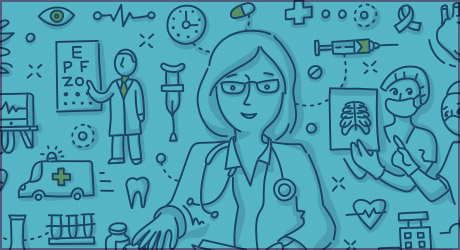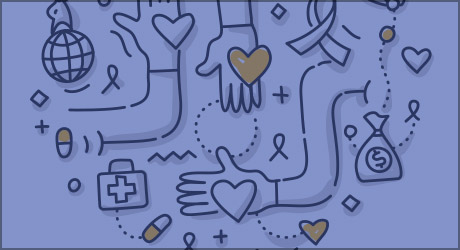
Why Choose Us?
Taking good care of your heart can help reduce your risk of heart disease and help you live a long and healthy life. The heart care team at Northeast Regional Medical Center is with you every step of the way - from preventive screenings and lifestyle support, through minimally invasive treatments and life-saving emergency care.
- We are a certified Chest Pain Center accredited by the American College of Cardiology
- We are a STEMI (Heart Attack) Referring Center accredited by the Society of Cardiovascular Patient Care
Cardiac care at Northeast Regional Medical Center focuses on the functions and disorders of the heart and circulatory system. According to the American Heart Association, 84 million people in the U.S. suffer from some form of cardiovascular disease, which affects blood flow throughout the body. Cardiovascular disease can lead to heart attacks, strokes or other serious complications.
We offer a wide range of cardiac services, including emergency care, diagnostic and interventional cardiology and rehabilitation. These services include heart failure care as well as heart rehabilitation that combines education, support and exercise therapy.
Diagnostic services:
- Arterial studies
- Cardiac catheterization
- Carotid studies
- Coronary angiography
- Echocardiograms
- Nuclear medicine studies
- Stress testing
- Venous studies
Other services:
- Interventional services (stents)
- Device implants and battery changes
- Outpatient cardiac rehabilitation
Heart Healthy Resources

A Woman’s Risk for Heart Disease is Different: Here’s What You Need to Know
Heart disease is a big issue in the United States for both men and women alike. But some risk factors are more unique to women.
Read more »

Is High Blood Pressure Considered Heart Disease?
Finding out you have high blood pressure can be worrisome if you aren’t sure what your numbers mean or what to do about them. Discover how high blood pressure affects your heart.
Read more »

How Does Smoking Affect Your Heart?
Smoking’s impact reaches far beyond your lungs, harming nearly every other organ in the body. Get the specifics on how smoking can influence your heart’s health.
Read more »

Why Your Heart Wants You to Pay Attention to Your Cholesterol
Your liver makes cholesterol in your body, but you also get cholesterol from eating certain foods. Find out how the wrong kind of cholesterol can impact your heart.
Read more »